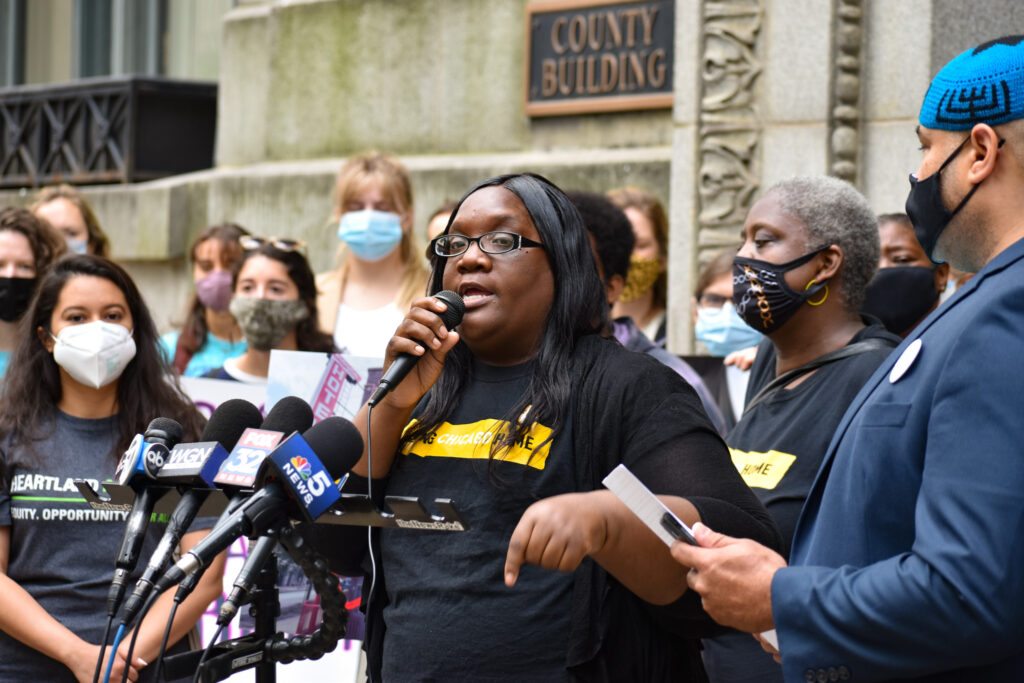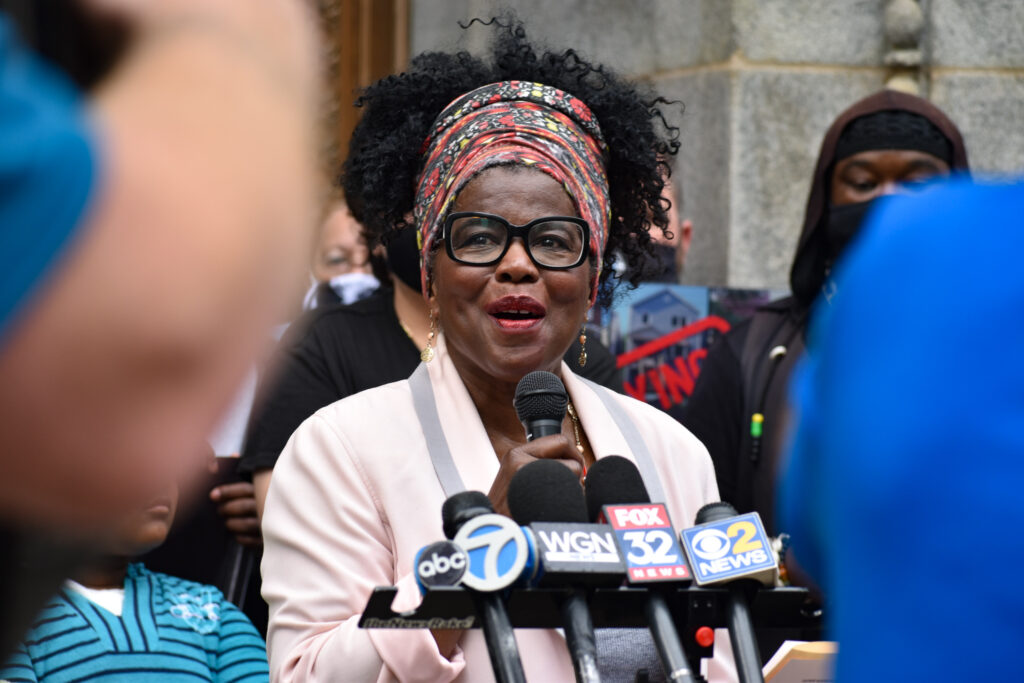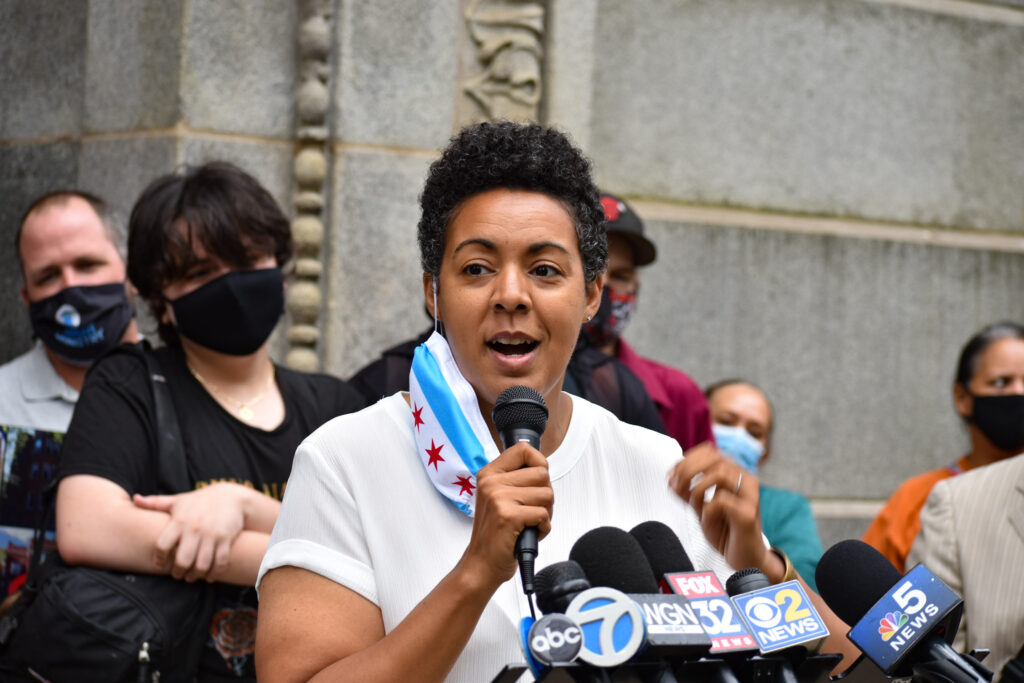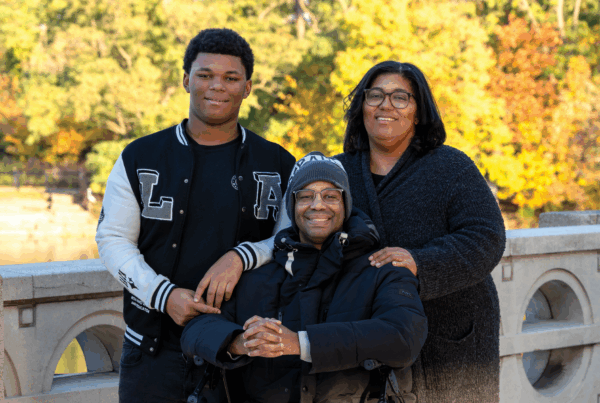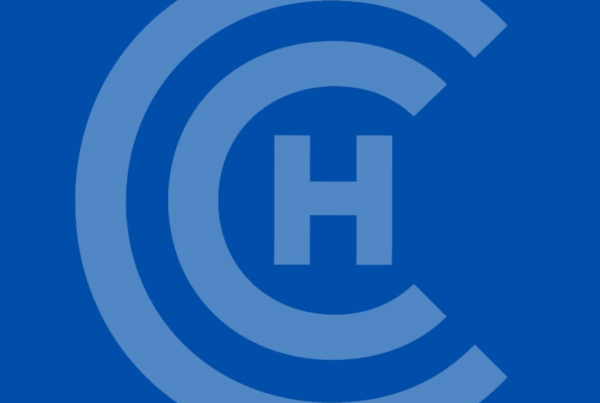Outside City Hall on Wednesday, July 21, 2021, elected officials and advocates stood together to demonstrate support and to speak on the pressing need to address homelessness and housing instability. As Illinois’ Eviction Moratorium is set to be lifted, a dedicated funding stream for affordable housing is needed.
Alderwoman Maria Hadden of the 49th Ward reintroduced a resolution on behalf of Bring Chicago Home in the City Council meeting later that morning. The resolution aims to restructure the Real Estate Transfer Tax (RETT), a one-time tax on properties when they are sold, to create a new, substantial, and legally dedicated revenue stream to provide permanent affordable housing. Alderpeople Daniel LaSpata, Matt Martin, Byron Sigcho-Lopez, Jeanette Taylor, Carlos Ramirez-Rosa, Rossana Rodriguez Sanchez, Michael D. Rodriguez and Andre Vasquez co-sponsored the resolution.
BCH calls on Mayor Lightfoot to support the resolution to create long-term housing opportunities to mitigate the lasting economic impacts of the pandemic that will otherwise result in a wave of homelessness on top of what the city already faces. Before the pandemic, 77,000 people experienced homelessness and that number will only grow when the eviction moratorium is lifted without long-term solutions.
“The burdens of history, structural racism, and current economic disparities caused the majority of people experiencing homelessness in Chicago to be Black—a situation which we now have a chance to help rectify,” says Rev. Dr. Jacqueline Triche Atkins, pastor at Christ Universal Temple.
BCH aims to give voters in Chicago the chance to weigh in on making the city’s RETT progressive to create a dedicated revenue stream to create and preserve affordable housing to combat homelessness. This would provide long-term funding that will outlast the one-time federal funds from the American Rescue Plan dedicated to addressing the housing crisis.
About Bring Home Chicago
BCH is a coalition comprised of people experiencing homelessness and housing instability, as well as community, policy, and direct-service organizations dedicated to addressing homelessness and lack of affordable housing in Chicago. Its members are: Communities United, Chicago Coalition for the Homeless, Jewish Council on Urban Affairs, ONE Northside, SEIU Healthcare – IL and IN, and United Working Families.
As a city, we can take the necessary steps toward undoing centuries of systemic racism that have created barriers for people in accessing what they need to survive and thrive, including housing. Homelessness affects Chicagoans in every corner of our city, but Chicagoans who identify as Black make up 61% of the population experiencing homelessness, and 82% of homeless students in Chicago Public Schools are Black.


